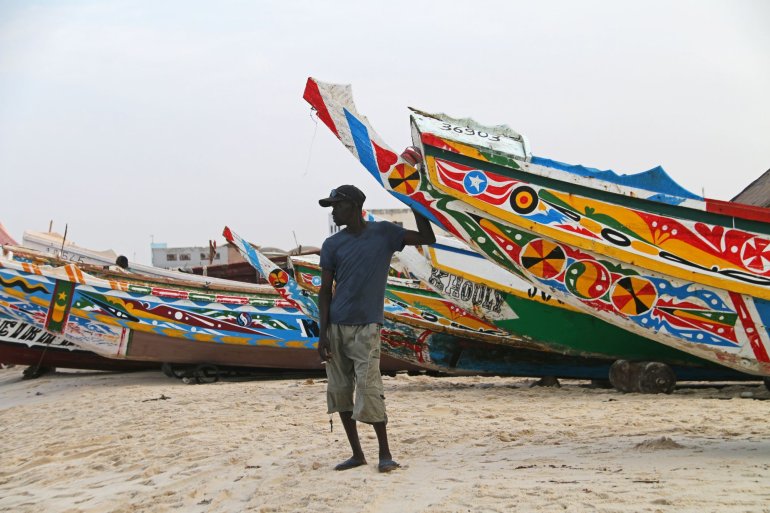Background
The need to address environmental and social issues in the Thai fishmeal industry has led via a complex journey, to a well-subscribed Fisheries Improvement Project (FIP) in the Gulf of Thailand and to the fishery applying to join the MarinTrust (formerly IFFO RS) Improver Programme.

The story begins in 2013 with pressure from a fast-developing shrimp industry, which was struggling to answer the concerns of non-governmental organisations (NGOs) about the sustainability of its feed.
Its production was intended for human consumption, with unused resources, not suitable for human consumption, going to a fishmeal plant. A significant portion of the fishmeal was produced from by-catch from wild stocks, the status of which were uncertain. As a result, access to certification programmes increasingly demanded by the global marketplace, such as Marine Stewardship Council (MSC), was not an option for the fishmeal fishery.
However, by setting up a FIP, the fishery could embark on a journey to understand and tackle the environmental issues and work towards eventual acceptance onto a certification programme.
Who's involved
Led by Mr Pornsil Patchrintanakul, the President of Thai Feed Mill Association, in late 2013, the eight private sector Thai fisheries organisations got together as the Thai Sustainable Fisheries Round Table, and signed a memorandum of understanding, in which they agreed to work to promote sustainable fisheries production in Thailand by entering into a FIP.
The organisations included the Thai Fishmeal Producer Association, Thai Feed Mill Association, National Fishery Association of Thailand, Thai Overseas Fishery Association, Thai Food Processors' Association, Thai Frozen Food Association, Thai Tuna Industry Association and Thai Shrimp Association.
Dr Rawee Viriyatum, was appointed as the initial FIP coordinator for the Gulf of Thailand, for the Thai Sustainable Fishery Round Table. A separate FIP project was put in place in the Andaman Sea with WWF Thailand.
The Thai Sustainable Fishery Round Table members soon agreed that the only workable approach to improving their fishery, was to get as many people as possible together in a collaborative effort, along with experts and representatives from the whole supply chain. Joining the industry collaboration offered that route.
The industry prioritised social aspects within the supply chain with human rights, including forced labour and worker voice, being targeted. With these issues often being intertwined with broader themes, it was decided that this approach should also cover fisheries management and governance, together with environmental responsibility and transparent traceability throughout the supply chain. Progress in developing a robust and credible FIP for the Gulf of Thailand, ready to submit an application to the MarinTrust IP, was initially frustratingly slow.
Round Table members admit that at the start, there was a sense of euphoria, that the fishing sector was finally on the right track and could make things happen within a couple of years. However, it became more of a stop-start process, with actions postponed many times, mainly because of a lack of understanding and information on all sides about the route forward. It also took some time to have productive discussions with the government, which needed to put a whole raft of new regulations in place.
However, in October 2016, the Round Table was finally able to announce a cooperation with the Thai government to adopt international fishing standards in the Gulf of Thailand, in order to create a long term sustainable fishery, taking into account the ongoing issues with overfishing, and illegal, unregulated and unreported (IUU) activities. The announcement marked the formal establishment of the FIP.
According to Vorapong Iamtrakul, General Manager for Sustainable Standard for Feed Raw Material Office at CP Foods, members are confident that the FIP will ensure the effective management of the marine resources to ensure they can be maintained at a level of maximum sustainable development.
First MarinTrust project
They are rightly proud that the project was the first in the world to apply the newly developed MarinTrust multispecies fisheries criteria, as a part of the MarinTrust Improver Programme.
“The MarinTrust programme is the most suitable for marine fisheries resource management in Thailand, as it is developing a method to address complex multi-species fisheries. The Gulf of Thailand is home to a multitude of different species of fish, so the assessment is a good test case,” Dr Viriyatum said.
Libby Woodhatch, Executive Director of MarinTrust explained that in order to get onto the MarinTrust Improver Programme, fisheries must undertake and pass a robust assurance process, which is provided through its application and surveillance system. One of the main criteria is that fisheries must meet improvement milestones during the process.
The MarinTrust Improver Programme was developed to allow fisheries that do not currently meet the full MarinTrust requirements, to work towards approval for certification along a structured and time-bound pathway.
“Through the work undertaken by the Gulf of Thailand FIP within the MarinTrust IP framework, it is hoped that new and novel approaches to measure improvements within multispecies fisheries can be developed and refined over the next few years with the overall aim of providing a clearer definition of a responsible multispecies fishery,” she said.
The Challenge for MarinTrust is that currently, there is no clear international agreement on what a 'sustainable' or 'responsible' mixed trawl fishery looks like. To overcome this, assessment criteria were produced using data from existing fisheries, helped by guidelines produced by the Asia Pacific Fishery Commission and the FAO Ecosystem Approach for Fisheries.
“There has been a lot of progress in the industry over the last few years in order to demonstrate real improvements within Thai fisheries, and we believe that this will continue through the FIP, and its commitment to the MarinTrust process,” Mr Iamtrakul said.
